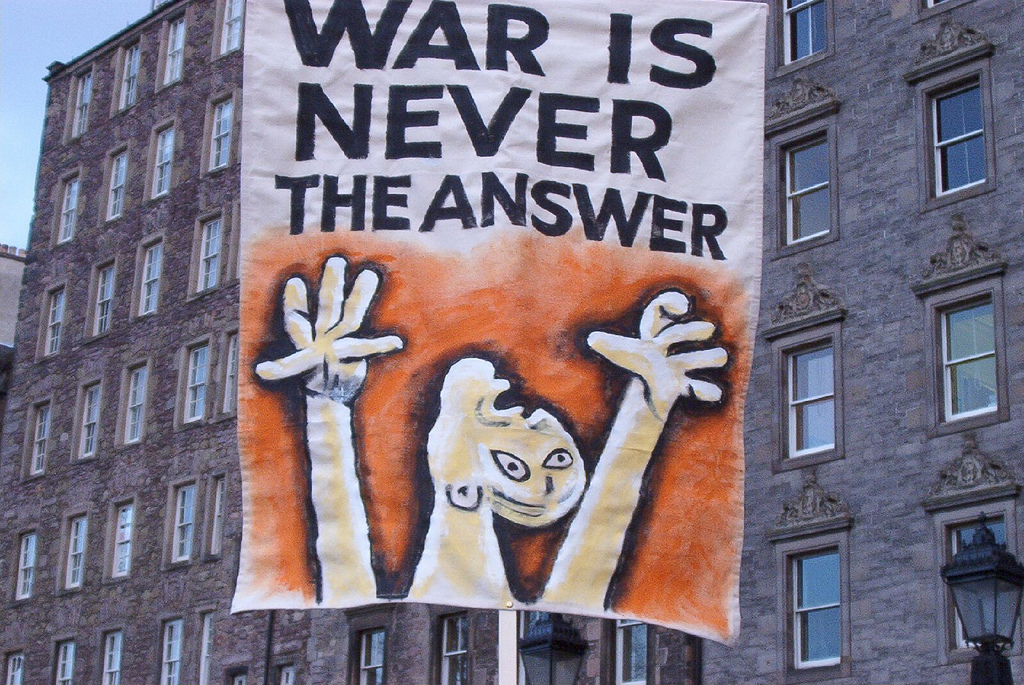“The notion that people aren’t interested in foreign policy issues is, I think, a misreading of the polling,” Phyllis Bennis told Democracy Now! ahead of the third, and final, 2016 presidential debate.
Bennis said that there’s a sense, from the candidates, that they don’t have to have answers for things like the legacy of the failed so-called war on terror because nobody is asking them those questions.
“I just came back from a series of college visits in Boston,” Bennis said. “And young people are very interested in those questions.” She said they’re worried about both the humanitarian crises in countries where we’ve employed a military solution, and the blowback that America may face as a result.
After the debate, Bennis said the conversations had around whether or not this election is rigged shows the importance of social movements.
“We’re seeing the inadequacies of a system and it’s come to the fore sharply with this candidacy,” Bennis said. The moderator did not challenge the many falsehoods in the candidates’ responses, she said. “At the end of the day, it’s only through social mobilization of movements that anyone will be held accountable.”
Some of the things that were missing from this and all the debates, aside from any conversation about climate change, Bennis said, were questions about what either of the candidates would do differently when it comes to foreign policy, and any mention of the Palestine question.
In Mosul and Aleppo, two of the “foreign hot spots” that were talked about, Bennis said there are scenes of horrific violence and humanitarian crisis. “There was no stepping back in the debate and saying, ‘here’s a strategy for how we should be dealing with this’ other than war.”
Bennis said the public discourse on the issue of Palestine has had huge shifts over the last decade. Phrases like “Israeli apartheid” are making it into the conversation, and Sanders took on the Israel-Palestine conflict as a foreign policy issue during his campaign, she said.
“We need to transform that discourse shift into a policy shift,” Bennis said. The U.S. has actually escalated its military aid to Israel to $3.8 billion a year.
There is a rising focus on the links of solidarity between the Black Lives Matter movement and the Palestinian struggle, Bennis said.
But there needs to be a stronger link between the anti-war movement and the support for refugees, she continued, so that refugees are welcomed, not grudgingly accepted at a rate of only 10,000 per year. There were no challenges from the moderators when candidates portrayed refugees as dangerous, or needing to go through an extreme vetting process, Bennis said.
These debates help us “recognize the power of social movements, but also point out how far we still have to go,” Bennis said.
…
Watch the full segment on Democracy Now!’s website.
